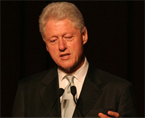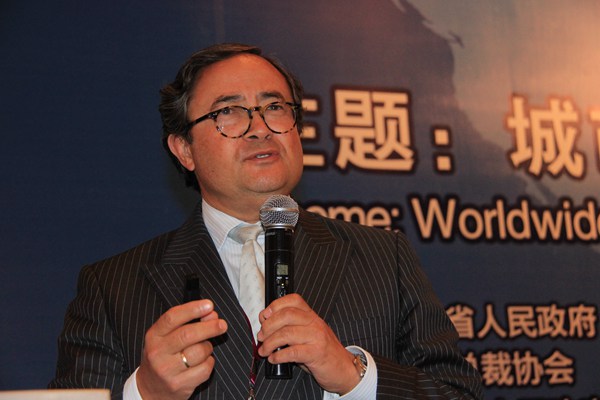|
outline of the speech (for more speech info,please feel free to contact us):
President Xi Jinping and Ecological Change in China: Multi-sectoral and Multistakeholder Approaches
“To usher in a new era of ecological progress and build a beautiful China is an important part of fulfilling the Chinese Dream for great rejuvenation of the Chinese nation. […] We will develop our geographical space, industrial structure, way of production and way of life in the interest of resource conservation and environmental protection, so as to leave to our future generations a sound working and living environment with a blue sky, green land and clear water.”
President Xi Jinping, Congratulatory Letter, Guiyang, July 2013
Fact Sheet on Overuse of Chemical Fertilisers and Chemical Pesticides in China
70% of the chemical fertilisers and pesticides end up as residual waste, causing serious soil and water contamination problems (Chinese Academy of Agricultural Sciences)
Over 10% of the Chinese mainland’s farmland is polluted and that about 12 million tons of grain contaminated by heavy metals every year over the past decades (University of International Business and Economics)
China’s main rivers are polluted with heavy metals
All chemicals end up in the food chain, causing major food borne diseases and loss of income
Consequence of Overuse of Chemical Fertilisers and Chemical Pesticides
43.36 million tonnes of pesticides and fertilisers per year create 15-30% more yield, but loss of health and income may cost more
Similar yield with reduced chemicals and increased biologicals can be obtained
Antibiotics Use in the Agricultural Sector
Antibiotics Use in Human Medicine
Spread of Antibiotic-Resistant Bacteria
96,700 tonnes of antibiotics per year create 6-10% more animal growth and income, but antibiotics land in food chain causing even more deaths and disease through microbes made immune to antibiotics
Similar animal growth promotion can be reached with non-antibiotics alternatives
China can take global leadership to replace fatal overuse of antibiotics and chemicals in farming through better alternatives
Pesticides/Fertilisers
Chinese authorities and scientists aware; governors want change: ready to act (Minister Han, 22/07/13)
European Union recently banned chemicals to protect bees (crucial for pollination). Consumers seek safe food: ready to act
US increasingly focused at biological alternatives and label information: ready to act
If No AMR Leadership? Major Economic Risk
Efficacy of antibiotics is rapidly decreasing and becoming a threat to public health
Resistance rates in animals will soon increase up to 100% for most common human antibiotics
Resistant bacteria will be spread from Chinese animals (via the food chain and through direct contact) to humans and vice versa, and will subsequently spread globally
This threat has already begun with the emergence of multiresistant Campylobacter, MRSA and E. Coli globally
Increasing resistance leading up to 100% resistance will cause millions of deaths, similar to the situation before the invention of Penicillin in 1928
Will dramatically diminish the strength and power of the nation
Will lead to a triple economic disaster, through higher costs of health care, diminishing workforce and income, and obstacles to international trade and exchange
If No AMR Leadership: Consumers Will Suffer
Vulnerable elderly people and infants with lower or no immunity capacity will die sooner from previously curable infectious diseases, such as pneumonia
Surgery in general will become very high-risk, as possible antibiotic interventions after operations become limited or nonexistent
Specialised surgery, e.g. heartvalve surgery, kidney transplants and other transplants will become impossible
Treatment of patients suffering from any form of cancer will be more life-threatening, as the (temporarily) diminished immune system will not be supported by antibiotics
Prematurely born babies will have a very small chance of survival
Dramatic personal and family loss of income if disease hits
Long Term Health Cost Consequences of Antibiotics, Chemical Fertilisers and Chemical Pesticides
Versus Shorter Term Agricultural Advantages
Leadership in China Based on Melamine Experience
It was believed that Agriculture sector/farmers could be 'helped' with allowing Melamine in milk, mimicking protein as price element and cheating consumers. This caused the largest loss of dairy industry plus employment ever.
How about the current practice of antibiotics, chemical pesticides and chemical fertilisers?
Food Technology and Production in China’s Current Five Year Plan
Prioritizes food security and enhancing agricultural modern technology and farmers’ living standard
To standardize the production of vegetables, fruit, tea, flower and plants, enhance agricultural products quality and supervision mechanism, effectively prevent and treat animal and plant disease, strictly control overuse of chemical fertilisers and pesticides, and establish agricultural demonstration centers.
“Combatting AMR globally and at regional and national levels requires leadership and support from the political level fostering multistakeholder engagement and empowerment for action.”
World Health Organisation, ‘The evolving threat of antimicrobial resistance: Options for action.’ 2012
Key Elements of Global Leadership
1) Priority for development of alternative products for growth promotion and prevention over development of new molecules which takes at least ten years while bacteria reach immunity within two years under continued present use
2) Zero use of human antibiotics in animal farming
3) Higher cost for life saving antibiotics while ensuring availability when necessary
4) Enforced restriction on use through equating lifesaving antibiotics to morphines
5) Establishment of international multistakeholders platform tasked with consensus building, information and communication
Example: Alternatives to Antibiotics as Growth Promoters and Feed Reducers
- Option for Cooperation |







